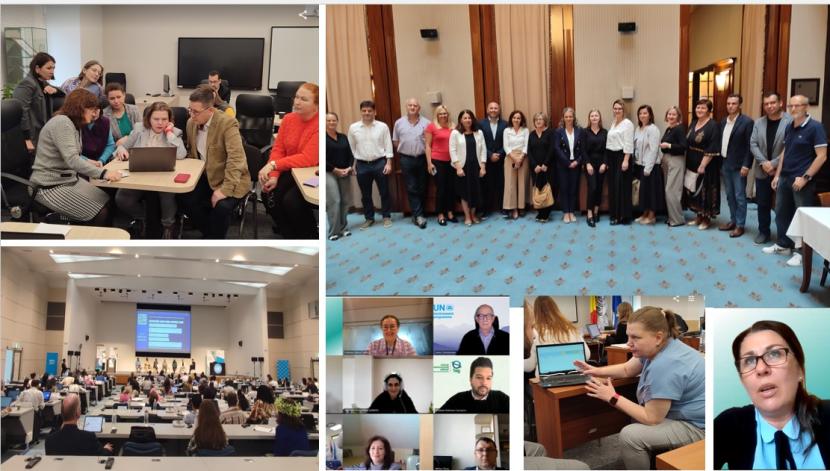Background
The year 2024 posed significant challenge for countries of the Eurasia Transparency Network as most of them entered the active phase of preparing their first Biennial Transparency Report (BTR) including developing and reporting on the Greenhouse Gas (GHG) Inventory, reporting on the Nationally Determined Contributions (NDC) including Mitigation and Adaptation measures and actions and their results, and Support Needed and Received.
Recognizing the needs in that context the CBIT-GSP in 2024 conducted numerous capacity-building events to enhance transparency and support countries to meet their reporting obligation and to improve quality of their BTR reports. These included peer-to-peer learning experiences, regional and country-based trainings, learning sessions, and webinars, both online and in-person. On that path the CBIT-GSP collaborated with various organizations and agencies in the region to strengthen the capacities of countries to prepare their BTRs and achieve the Enhanced Transparency Framework (ETF) of the Paris Agreement. Key collaborators included Secretariat of the United Nations Framework Convention on Climate Change (UNFCCC), the Food and Agriculture Organization (FAO), the United Nations Development Program (UNDP), the United Nations Environment Program (UNEP), Institute for Global Environmental Strategies (IGES) and the European Environment Agency (EEA).
As we move into 2025, the CBIT-GSP plans to continue supporting all countries across the network in this crucial process. This will involve national experts in key reporting areas of the BTR, reviewing GHG Inventories, NDC tracking, and providing a platform for sharing best practices and lessons learned on the ETF. The CBIT-GSP will also support countries in their NDC 3.0 preparation and explore opportunities for enhancing NDC achievement and implementation to ensure transparency under the Paris Agreement.
The Eurasia Network 2024 annual meeting will focus on showcasing the key results and achievements from the year's activities, discussing their effectiveness, and how they have helped countries refine their reporting processes under the Paris Agreement. It will also cover the lessons learned from the support provided by CBIT-GSP and other partner organizations, based on the current needs of the countries in Eurasia.
The Eurasia Network 2025 annual work plan will be informed by feedback surveys and the second capacity needs assessment conducted in November and December 2024. The regional networks convene annually to review progress and plan for the subsequent year to ensure ongoing relevance and effectiveness. The annual meeting is crucial as it offers a collaborative forum for member countries to discuss, identify, and agree upon the network’s priorities, directly influencing the annual work plan focusing on the key priorities of the nations.
Objective
The primary goal of the Annual Meeting of the Eurasia Network is to evaluate the progress made in implementing the 2024 workplan and to discuss further needs and the draft workplan with proposed activities for 2025. Participants are expected to discuss and jointly agree on the proposed network activities for 2025, aimed at building technical and individual capacities for climate transparency and reporting in the Eurasia region. The discussions will be also based on the key findings from the capacity needs assessment on transparency, recently conducted by the CBIT-GSP team in November and December 2024.
Target Audience
The annual meeting will gather all network members, including CBIT GSP Focal Points and nominated national experts, coordinators/managers of enabling activities, representatives of CBIT and other transparency projects, transparency practitioners, national climate focal points and collaborating organizations and partners.
Duration and Language
It is expected that the meeting will last up to 2 hours with sufficient timing dedicated to discussion and Q&A sessions.
The meeting will be held in English language.
